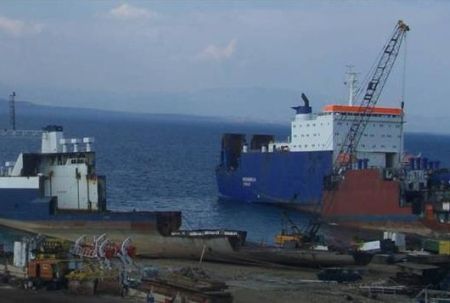
The company said on Monday it will no longer sell its old ships on global markets, but will send its ships to specialized docks.
With such decision the company takes the lead in responsible ship recycling.
Global Marketing Systems, Inc (GMS), the world’s largest cash buyer of ships for recycling, has welcomed the announcement.
Dr Anil Sharma, President and CEO of GMS, said: “It will be good to see, well ahead of proposed regulations entering in force, many more companies following this example by providing their ships with Inventories of Hazardous Materials and by ensuring that their ships are recycled in line with the guidelines of the IMO’s Hong Kong Convention for the Safe and Environmentally Sound Recycling of Ships, 2009.”
“This will ease the entry into force of the Hong Kong Convention because recycling yards around the world will realise the need to be prepared and to invest in safety and environmental protection improvements.”
Dr Sharma advises caution, however, in managing what is effectively a whole new way for the industry to do business.
“At this early stage, shipowners must target their custom towards recycling yards in all areas of the world, including India, China and Turkey.
Whilst there are yards in, for example, China, that now comply with many regulations, we feel it important for the industry to recognise that there are many more recycling yards around the world, and in particular India, that are making moves to implement meaningful and incremental improvements in processes, and thus driving a groundswell of support for the Convention.”
An ardent proponent of green ship recycling, GMS formed part of the deliberations leading to formulation of the Hong Kong Convention.
GMS has seen first-hand that yards cannot make the necessary improvements alone and that they need to work in partnership with shipowners to develop environmentally sustainable solutions that the industry can be proud of.
GMS appointed Dr Nikos Mikelis to the role of Non Executive Director, with the remit of assisting GMS in developing synergies with ship recycling facilities and ship owners that are committed towards green and responsible ship recycling.
Dr Mikelis explains: “We work with recycling yards in India, for example, that are currently implementing improvements to safety, to environmental protection, and to social welfare.”
“The owners of these yards need – and deserve – to be supported by the custom of quality shipowners, so that their businesses can prosper and so that they can become examples to be imitated by the rest of the recycling industry in their country.
If, on the other hand, these yards are not positively favoured by the socially responsible shipowners, then how will safety, environmental and welfare improvements be fuelled in the countries that need them most?”
Concluding, Dr Mikelis stresses: “The only way that international standards for ship recycling will make sense in the future is for the standards to be implemented and enforced globally, so that a single international standard applies to ship recycling, in the same way that there is one MARPOL standard for pollution prevention for all ships, regardless of flag or area of operation.”
We use cookies to improve your experience. By continuing to use our site, you accept our Cookies, Privacy Policy,Terms and Conditions. Close X